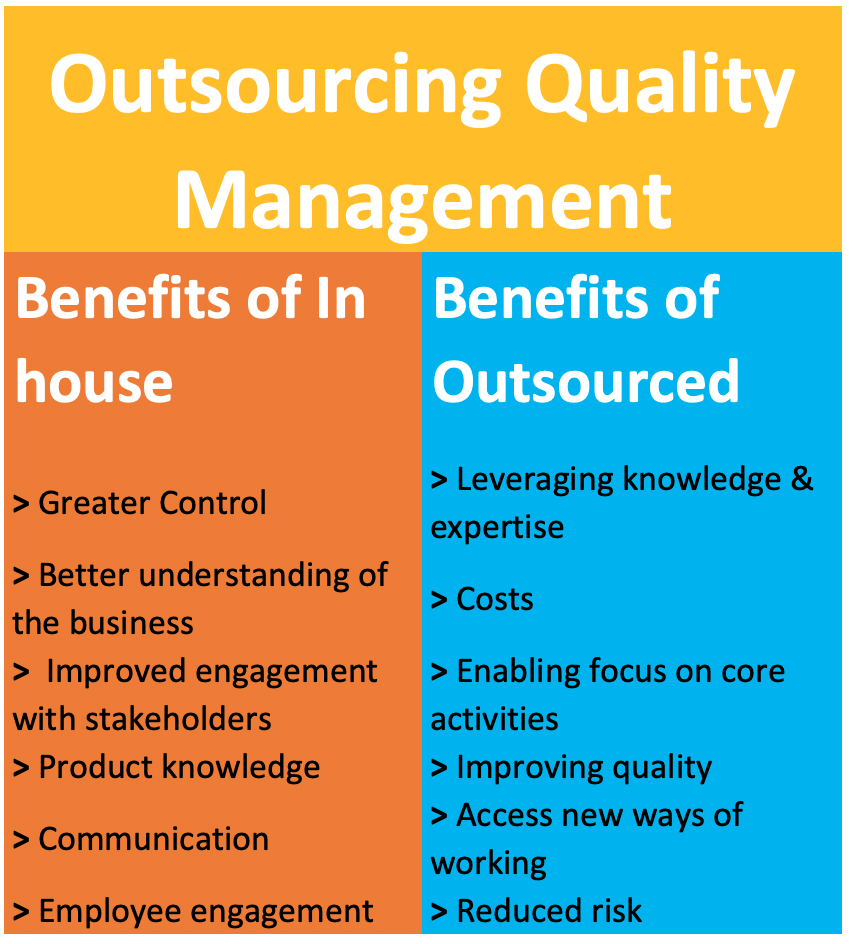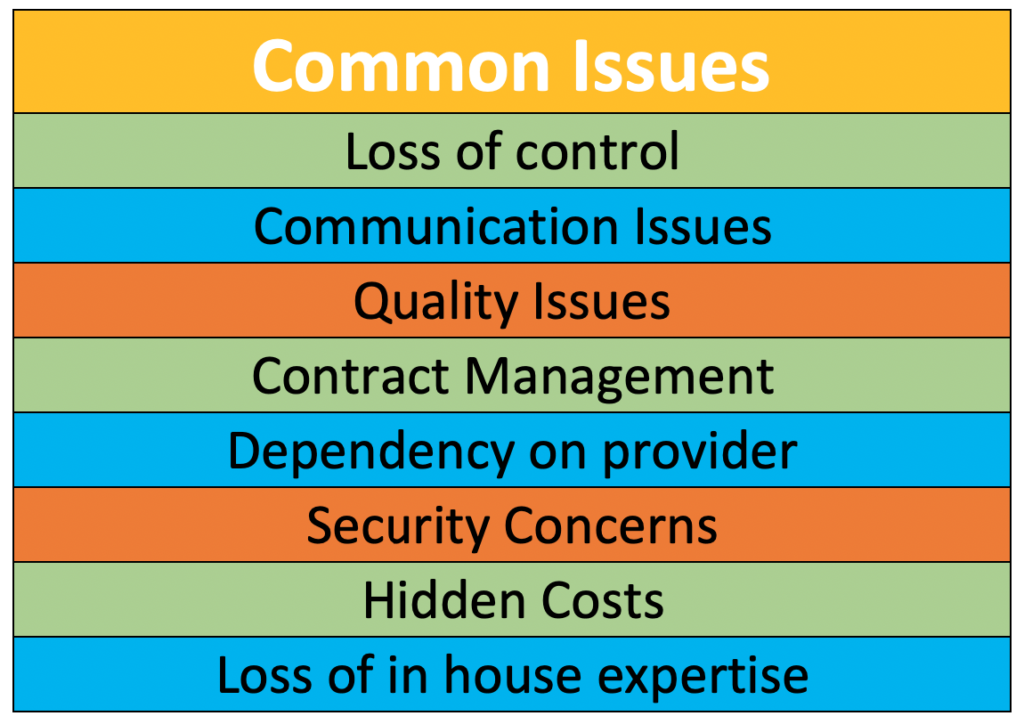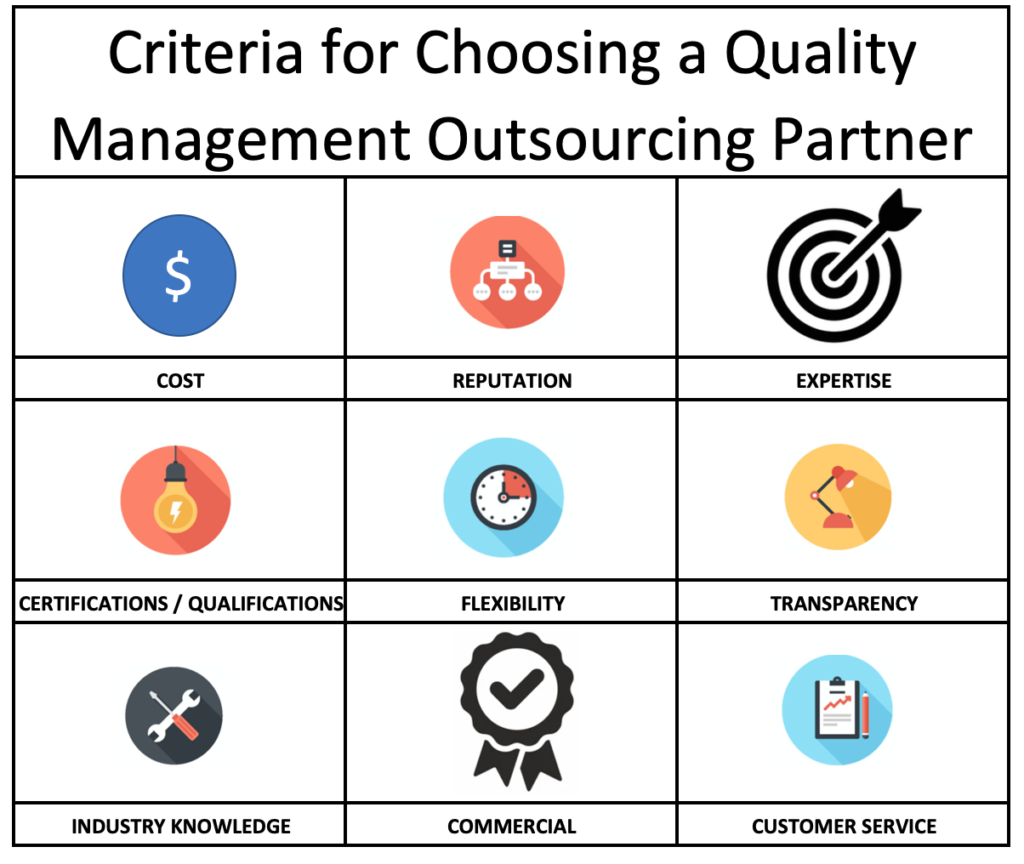Outsourcing quality management involves partnering with a third-party provider to administer all or elements of the quality management function. Outsourcing may include activities such as auditing, inspections, continuous improvement and supplier quality management.
As part of the outsourcing processes, organizations are likely to determine which tasks get outsourced based on factors such as need and cost in-house vs external expertise.
While there are some possible drawbacks, many businesses are now opting to outsource their quality management as a means of enhancing the efficiency and effectiveness of this function and, by doing so, targetting a range of benefits.
In today’s article, we will be exploring the topic of outsourcing quality management. We’ll look at guidance on how to execute the activity and the pros and cons. We’ll be covering:
- What is Outsourcing Quality management
- Why outsource Quality management
- How does outsourcing quality management affect your quality department
- What aspects of quality management can you outsource
- Advantages in outsourcing Quality management
- Disadvantages in outsourcing Quality management
- How do you Choose a Reliable Quality management Outsourcing Partner
- Steps for Successful Outsourcing Quality Management
- Can outsourcing improve Quality
What is Outsourcing Quality management?
Quality management is an essential business function that ensures products or services meet customer expectations and comply with industry standards and regulations.
Outsourcing quality management is the process of delegating aspects of related quality management activities to a third-party provider.
When businesses choose to outsource, they usually have specific objectives in mind. These objectives may include accessing the knowledge and skills of external quality professionals, lowering costs, and allowing the company to concentrate on its primary business operations. These goals will vary from company to company and industry to industry.
Many companies turn to external providers for quality management tasks, such as audits, inspections, and management systems. However, they are often selective in choosing which activities to outsource, expecting the external provider to bring added value rather than merely replacing internal competency.
When outsourcing any aspect of quality management, selecting the right partner is essential. They can have a direct impact on Quality and, therefore, directly impact your customer. As a result, the ideal partner should have the required expertise, experience and resources to provide the services required in order to enhance the business.

Fundamental to this will be the creation of a detailed contract that explicitly outlines the scope of work, responsibilities, ways of working and quality expectations.
Common characteristics when outsourcing quality management include:
- Selecting which aspects of the Quality function will be outsourced
- Clearly identified goals and benefits
- Engagement with a third-party service provider(s)
- Customizing the solution based on specific business needs
- Having a clear Statement of Work describing requirements and obligations
- Active collaboration between the third party and parent business regarding delivery
- Appropriate scaling of the parent businesses quality team
- Sustainment of compliance with mandatory standards and regulations – outsourcing must not have a detrimental impact
- Knowledge transfer between the provider and the parent business (improving expertise within the parent businesses quality function)
Why outsource Quality management
There may be numerous reasons why businesses choose to outsource parts of their quality management function; these include:
- Potential Cost savings
- Lack of internal expertise and experience
- Flexibility
- Greater Efficiency
- Access to 3rd party resources, methodologies and tools
- Enabling the business to focus on core business activities
How does outsourcing quality management affect your quality department
As we’ve described, outsourcing quality management involves partnering with a third-party provider to handle quality management tasks. This is likely to have some impact on the incumbent quality management function within the business; this might include
- Having access to specialized expertise and knowledge
- Sharing tasks
- Reducing workload
- Improved efficiency by focusing on a reduced task portfolio
- Improved effectiveness
- More focus on value add activities
Deciding which activities to keep in-house and which ones to outsource can be a difficult decision. Many factors need to be taken into account, which should be led by the impact on employees.
What aspects of quality management can you outsource?
Quality management, as a function, can be wide-ranging, and as such, there can be a multitude of activities that can be outsourced.
Many organizations look to outsource groups of activities or functions such as supplier-related activities, including approval and auditing or Quality control or related certification functions.
Benefits to this approach include the ability to contract organizations that specialize in these areas.
Common activities that are often outsourced include:
- Auditing
- Quality assurance tasks
- Supplier management
- Business Management System and its Development
- Training
- Process improvement or use of associated methodologies such as Lead or Six Sigma
- Risk management
- Compliance (regulatory or standards-based)
- Metrics and reporting
Advantages of outsourcing Quality management
Outsourcing quality management can provide significant advantages to organizations, including improving the effectiveness of its quality function, reducing costs, improving flexibility and providing resilience.
Common advantages that attract companies to outsourcing include:
- Access to specialized expertise
- Improved efficiency (outsourcing repetitive, tactical tasks and instead focusing on strategic tasks such as policy development and planning)
- Reducing costs
- Scalability (Outsourcing allows an organization to scale their quality management efforts up or down depending on need)
- Improving performance and effectiveness
- Increasing flexibility (allows an organization to quickly adapt to changing market conditions or regulatory requirements).
Disadvantages in outsourcing Quality management
Unsurprisingly there are challenges when it comes to outsourcing. This is true of any function, but delivering poor-quality performance can be catastrophic to a business.
As a result, organizations do need to carefully consider the potential disadvantages of outsourcing quality management and weigh them against the potential benefits before embarking on an outsourcing arrangement.
Potential issues that could emerge include:
- Loss of control: without appropriate planning and management, outsourcing may result in a loss of control. This can make it difficult for organizations to ensure that their quality management goals are met.
- Communication issues: Communication issues can arise when working with any third-party provider. This can result in misunderstandings and delays.
- Quality issues: If the third-party provider does not meet desired performance levels, this can affect Quality which can impact customers.
- Contract management: Outsourcing quality management requires careful contract management to ensure that the third-party provider meets contractual obligations.
- Dependency on the third-party provider: Organizations may become too dependent on the third-party provider, making it difficult to bring quality management processes back in-house if needed.
- Security risks: Outsourcing quality management can expose organizations to security risks, particularly if sensitive information is shared with the third-party provider.
- Hidden costs: Hidden costs associated with outsourcing quality management, such as contract management and vendor oversight, can add up over time.
- Loss of expertise: Outsourcing quality management can result in the loss of expertise within the organization, as employees may no longer have the opportunity to develop and apply quality management skills.

How do you Choose a Reliable Quality management Outsourcing Partner?
Clearly, one of the main enablers for outsourcing is the selection of a reliable and credible partner.
Selection criteria may vary from company to company (and industry to industry), but there are likely to be some common selection characteristics.
Here are some likely considerations when choosing a Quality management outsourcing partner:
- The reputation of the provider
- Industry expertise
- Experience in the areas you’re looking to outsource.
- Certifications and qualifications
- Working practices and flexibility
- Communication & Transparency
- Data security
- Cost
- Commercial considerations / Contracting method
- Customer service and after-sales support

What is also vital is that you share your vision with the provider, reach an agreement over how they will deliver your goals and add value to your organization.
Steps for Successful Outsourcing Quality Management
If you’re thinking about outsourcing quality management, it’s important to plan how you will go about it.
It’s not something to take lightly, and some planning and discussion within the business will be required upfront.
The following are common steps involved in the outsourcing process:
- Identify your needs and develop a statement of work (which should include levels of service expected)
- Research potential outsourcing partners
- Conduct due diligence
- Develop and agree a contract
- Establish a communication plan
- Transfer responsibilities for appropriate activities from the parent company to the provider
- Monitor performance – this is likely to include reviews and metrics
- Review and adjust: Review and adjust future outsourcing plans as necessary.
Can outsourcing improve Quality?
Organizations can benefit greatly from outsourcing quality management, and it is possible to improve levels of Quality by doing so. There are caveats, however:
- Outsourcing should be a clear part of your Quality strategy with goals and objectives.
- You’ll need a vision of how you’ll operate, how the provider will supplement the existing team, how will you monitor success and benefits, and what will happen when things go wrong? Who has accountability? How will your internal documents, processes and policies be affected?
- There is a clear reliance on selecting the right provider(s), get this wrong and you’ll likely be in a worse position than you started in
- How will you capitalize on expertise – your provider is likely to have knowledge and skills that you don’t have, how will you get the best out of them and leverage these aspects to your benefit?
Summary
Many businesses choose to outsource aspects of their quality function to external providers. This option allows organizations to capitalize on the many benefits that third parties can bring, including providing fresh perspectives, specialized skills, and industry expertise that can help businesses achieve their quality goals more effectively.
There are, however, risks, such as loss of control, communication issues, and security concerns. To minimize these risks, it’s essential for businesses to carefully select and manage third-party providers and establish robust contract and communication processes.
Have you outsourced any part of your Quality Management systems? If so, we’d love to hear how you got on. YOu can reach us using the comments section below or via Twitter.
